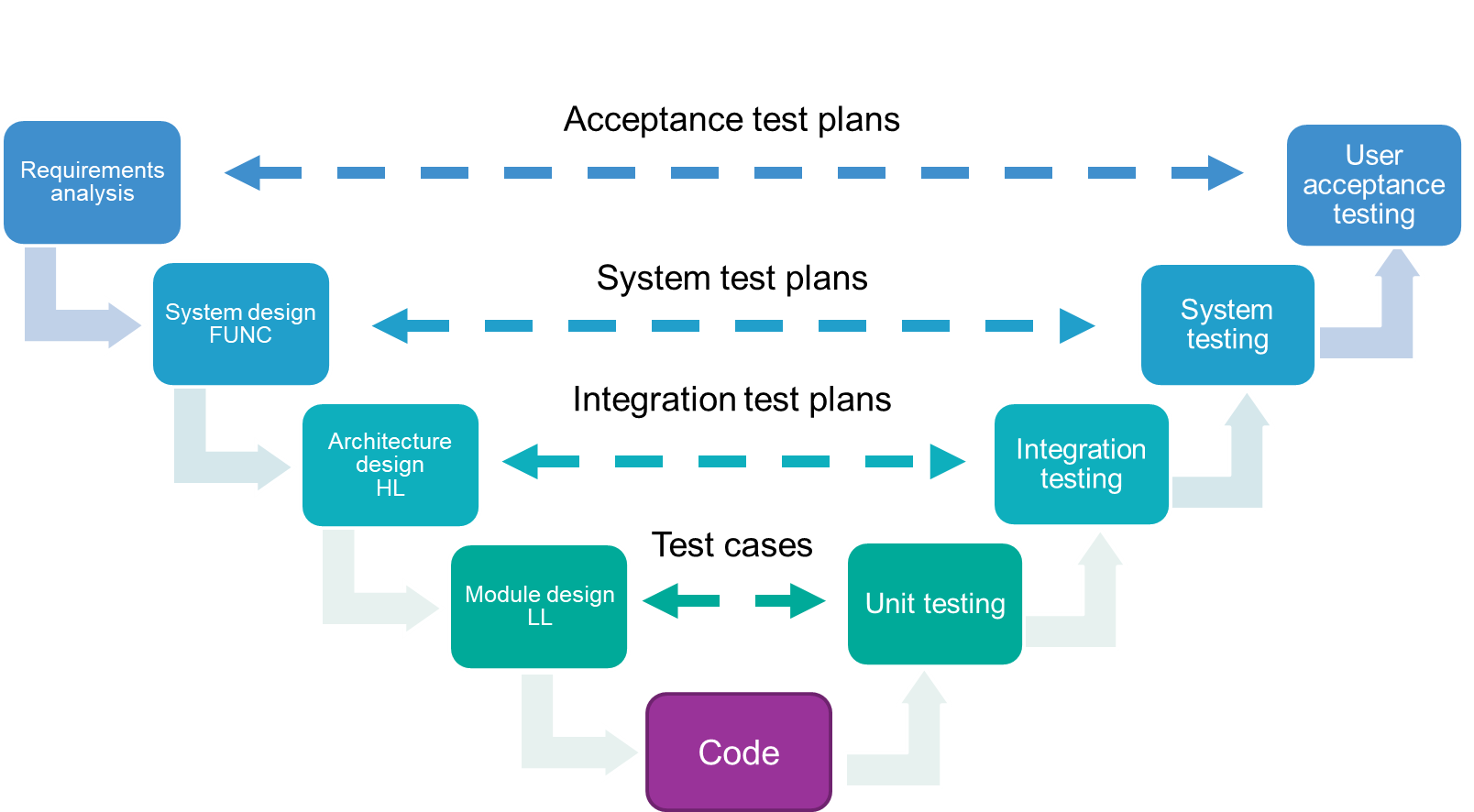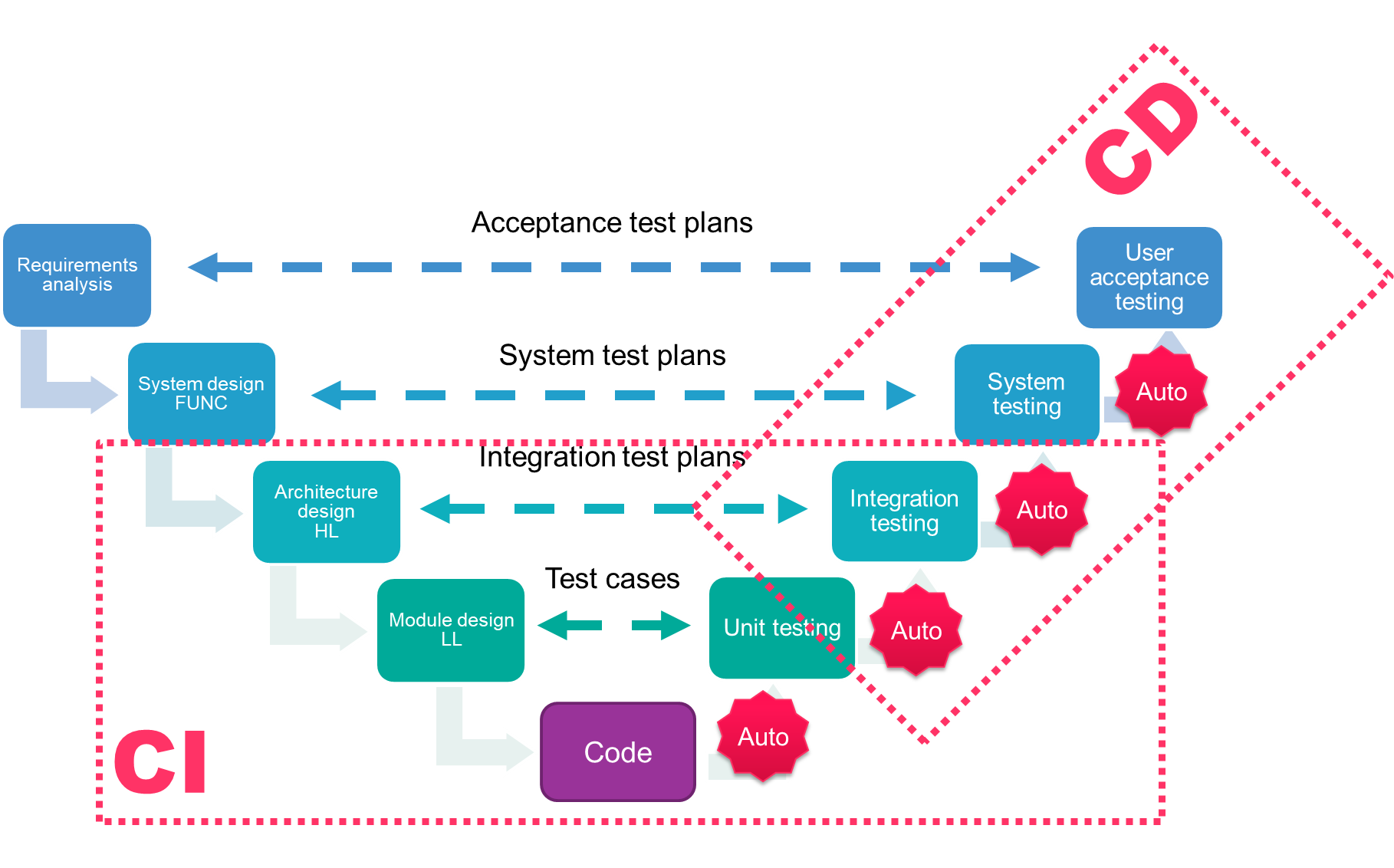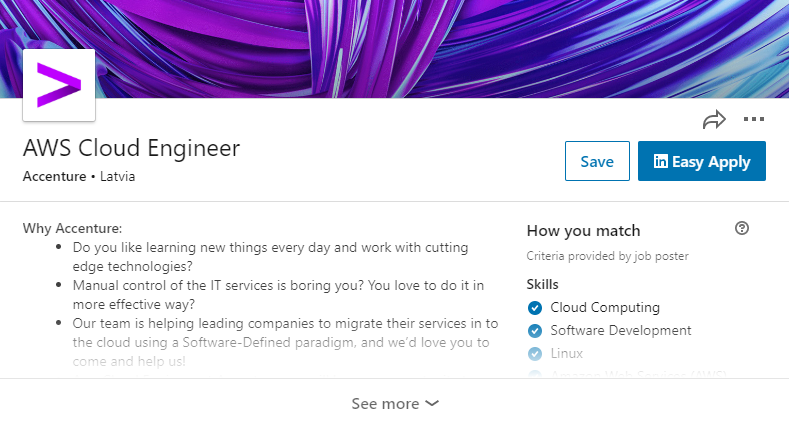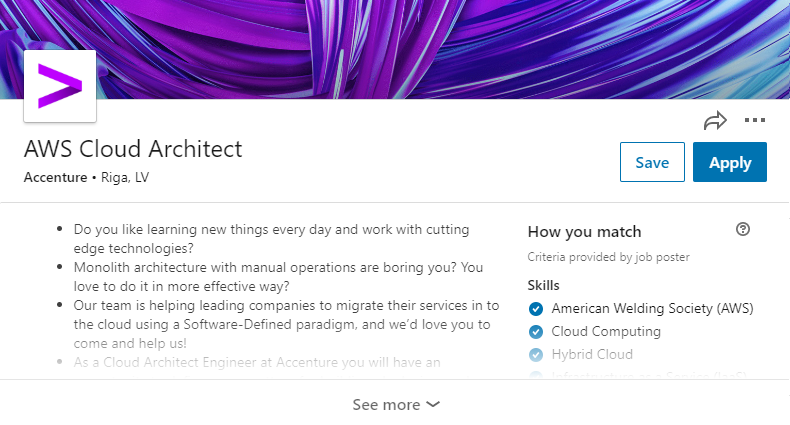Why Cloud? Best flexibility and business security.
-
Agile development.
Better-quality applications, faster-developed applications, and better technical practices.
Why Cloud? Best flexibility and business security.
-
DevOps practices.
Allows you to adopt new approaches like minimum viable product (MVP) development, multivariate testing, rapid iteration, and working closely across organizational boundaries in a DevOps model.
Why Cloud? Best flexibility and business security.
-
Platform-as-a-service (PaaS).
The cloud platforms provides greater flexibility in tools and less overhead so you can focus on code.
Why Cloud? Best flexibility and business security.
-
Infrastructure-as-a-services (IaaS).
Cloud offering that enables a level of agility not possible with traditional IT infrastructures that rely on on-premises data centers.

V Model
Traditional software development models, also known as Verification and Validation model.
- Verification involves static analysis technique (review) done without executing code.
- Validation involves dynamic analysis technique (functional, non-functional), testing done by executing code.

CI/CD
The best practices for delivering code changes more frequently and reliably.
- Continuous Integration is a coding philosophy and set of practices that drive development teams to implement small changes and check in code to version control repositories frequently
- Continuous Delivery automates the delivery of applications to selected infrastructure environments
Let's deploy cloud-native allication in simple way!
* * *
Red Hat OpenShift.io is an innovative online service for development teams. Installing and configuring IDEs, libraries, and various tools is a major time sink. OpenShift.io is a cloud-native set of zero-install tools for editing and debugging code, agile planning, and managing CI/CD pipelines.
Simple steps
-
01. Create Space
-
02. Create Application
-
03. Attach repository
-
04. Choose and Run Pipeline
Thank you!
Feel free to apply for





